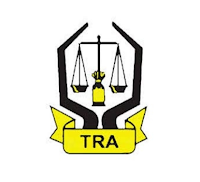
Call For Interview at TRA Tanzania 2023,Majina ya walioitwa kwenye usaili TRA 2023, List ya walioitwa kwenye interview TRA 2023
Call For Interview at TRA Tanzania 2023
The Tanzania Revenue Authority (TRA) is the government agency responsible for the administration and collection of taxes in Tanzania. It was established in 1995 under the Tanzania Revenue Authority Act, with the aim of enhancing revenue collection and promoting voluntary compliance with tax laws.
Recommended:DOWNLOAD PDFFILE HERE
The TRA’s main functions include:
1. Tax Administration: The TRA is responsible for administering various taxes, including income tax, value-added tax (VAT), customs duties, excise duties, and other taxes as specified by the government. It ensures that taxpayers comply with tax laws and regulations by providing guidance, conducting audits, and enforcing penalties for non-compliance.
2. Revenue Collection: The TRA collects taxes on behalf of the government to finance public expenditure and development projects. It establishes efficient systems for tax collection, including electronic platforms for filing tax returns and making payments. The authority also conducts taxpayer education programs to promote awareness and understanding of tax obligations.
3. Customs Control: The TRA oversees customs operations at ports of entry to ensure compliance with import and export regulations. It facilitates trade by implementing efficient customs procedures, reducing clearance time, and combating smuggling and other illicit activities. The authority collaborates with regional and international organizations to harmonize customs procedures and promote cross-border trade.
Read Also:
The organizational structure of the TRA consists of several departments:
1. Taxpayer Services Department: This department is responsible for providing taxpayer education, registration services, taxpayer assistance, and handling taxpayer complaints and disputes.
2. Tax Audit and Investigation Department: This department conducts audits and investigations to verify the accuracy of tax returns filed by taxpayers. It identifies cases of non-compliance, assesses additional taxes due, and takes appropriate enforcement actions.
3. Customs Services Department: This department manages customs operations at ports of entry, including clearance of goods, assessment of customs duties, inspection of cargo, and enforcement of import/export regulations.
4. Legal Services Department: This department provides legal advice and support to the TRA on matters related to tax administration, interpretation of tax laws, and handling of legal disputes.
5. Information Technology Department: This department develops and maintains the TRA’s information systems, including electronic platforms for tax filing, payment, and data management. It ensures the security and integrity of taxpayer information and supports the automation of tax processes.
Read Also:
The TRA collaborates with other government agencies, such as the Ministry of Finance and Planning, to develop tax policies and legislation. It also works closely with international organizations, including the International Monetary Fund (IMF) and the World Bank, to strengthen tax administration practices and improve revenue collection.
In conclusion, the Tanzania Revenue Authority plays a crucial role in the administration and collection of taxes in Tanzania. It ensures compliance with tax laws, collects revenue for public expenditure, facilitates trade through efficient customs procedures, and collaborates with various stakeholders to enhance tax administration practices.

